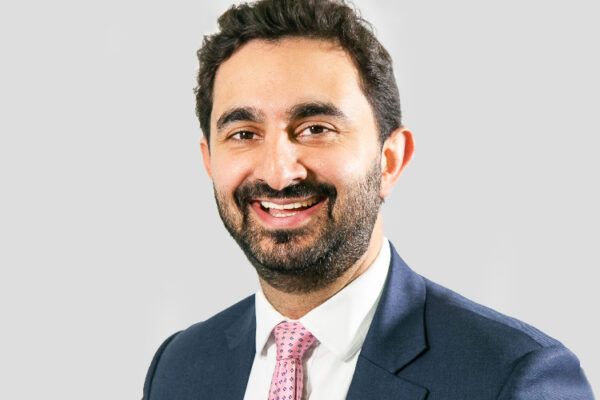A day in the life of… Harpreet Sood

Harpreet Sood is Associate CCIO at NHS England. Speaking at the NIA Fellows’ Quarterly Event in April, Harpreet gave an update on the NHS Digital Academy, Global Digital Exemplar programme, and shared his top tips for innovators looking to engage with NHS England.
What does a ‘typical’ day look like in your role as Associate CCIO at NHS England?
There’s three things really: the first is day-to-day work on a variety of programmes – one I’ve been working on recently is the Digital Academy. The second is stakeholder engagement, so meeting NHS partners, digital companies – this might involve visits to them to see what’s happening. And the third is thinking about the future – where things are going, and how we develop a strategy and a more future-looking vision. So that’s usually what my day looks like, but of course it varies.
As a practicing NHS doctor, how important is the role of health innovation for the NHS?
It’s tremendously important, but we have to be mindful of what it means to practice as a doctor. I worked in A&E for the first time in 2011, and again seven years later. In that time, nothing has changed in terms of how A&E functions: people still come in, get seen by medics, prescribed medicines and are discharged. So the question we have to ask ourselves is, what does innovation mean, and how does it impact on the frontline doctor?
When I’m practicing as a doctor, all I’m responsible for and all I need to do well is see the patient in front of me and make sure they get the best treatment and the best diagnosis. I can’t think of the innovation side of things. But I know it’s fundamentally important because I’m also running around doing things I shouldn’t be doing – chasing results, chasing images, bleeping people, etc. There’s a huge amount of work that could be done to make my job better in terms of how I practice, and that’s where innovation plays a huge role.
Are there any innovations you’ve come across that have really stood out for you, and why?
Loads! I mean, each of the 36 Fellows on the NIA has a fantastic innovation. But I think there’s lots of pockets of excellence. I wouldn’t want to name one individual or one organisation, but I think we’re seeing some really exciting stuff.
You’re leading the NHS Digital Academy. Could you tell us more about this initiative and what’s currently happening?
The Digital Academy came off the back of Professor Bob Wachter’s review, looking at the digitisation of the NHS. One of the key things to come out was how we develop a workforce with the skills and knowledge to do things differently.
We managed to secure £6M to fund the next 300 CCIOs and some of the aspirant digital leaders coming through, in order to get them up to a level of good standing and professionalism. The Digital Academy is being delivered by Imperial, Harvard and Edinburgh Universities, who have come together as a consortium. We see it as a flagship programme for the country, but we’re also playing an important role globally in the education of these professionals. It’s an exciting time.
What’s your vision for the NHS Digital Academy and its ‘graduates’?
That they will be the rock stars of the NHS, who end up doing some really important work in their local institutions, at a regional level, at a national level, and even at a global level. I think a lot of them need the confidence, authority and the ability to understand the art of the possible to do some remarkable things. We’re seeing some great enthusiasm and excitement from our first cohort.
You’re also working on the Global Digital Exemplar Programme. Why is this such an important initiative? Could you share any key learning or success stories to date?
The Global Digital Exemplar programme – or GDE – is our effort to digitise the infrastructure – so the adoption of electronic patient records (EPRs) and doing care redesign in different ways. As with so many of these things, one of the key learnings is that this work is difficult and very time consuming. We can’t expect a magic bullet – that you can install a health IT system, and all the problems are gone. It requires a tremendous amount of investment and resource, and to think about things differently.
That’s another key learning: what we anticipate as a success end-date, compared to what the actual success is, can be different. We need to maintain momentum and energy to get people onboard, and keep them enthused and energised. We also need to showcase and recognise the people doing this great work.
What three top tips would you give to innovators looking to achieve uptake and spread in the NHS, in terms of the best ways to engage with NHS England?
- Perseverance. We like people who persevere consistently. I know it’s not always the easiest of things, but it’s important.
- Patience. Stuff like this takes time. I know it’s difficult when you’re a start-up and you need things to happen quickly, but patience in the health system is important.
- Network. Networking can have a big impact, because those people can make things happen if they’re the right people.
More information about the NHS Digital Academy is available here
More information about the Global Digital Exemplars is available here